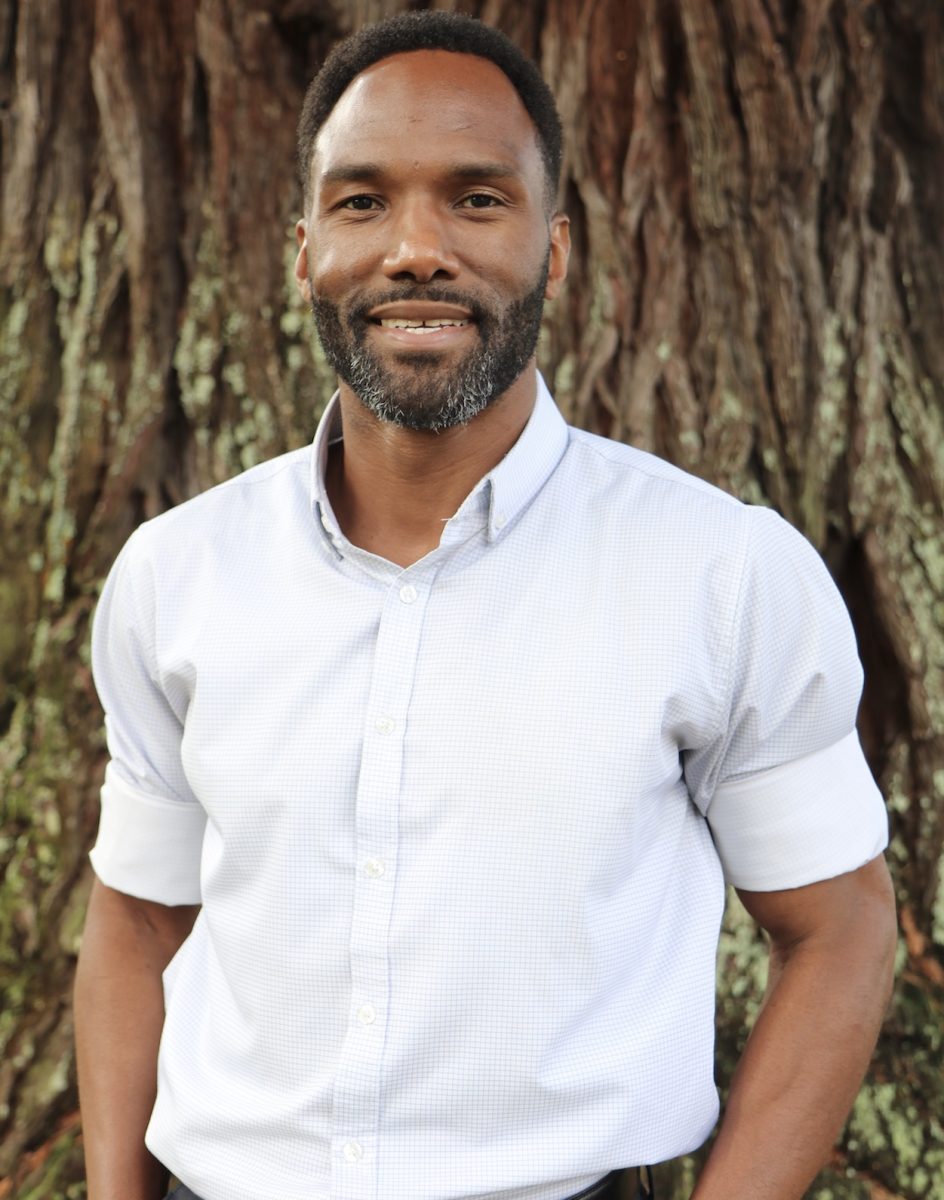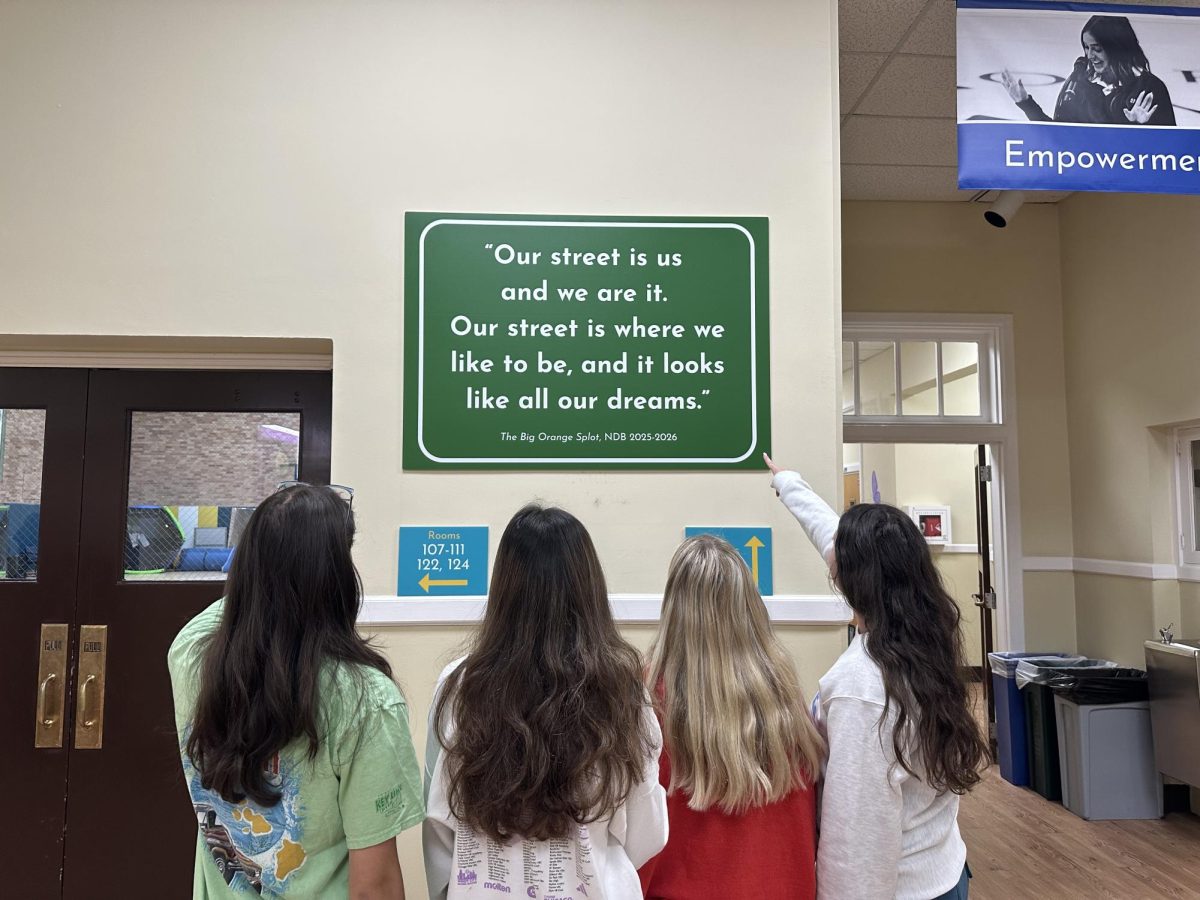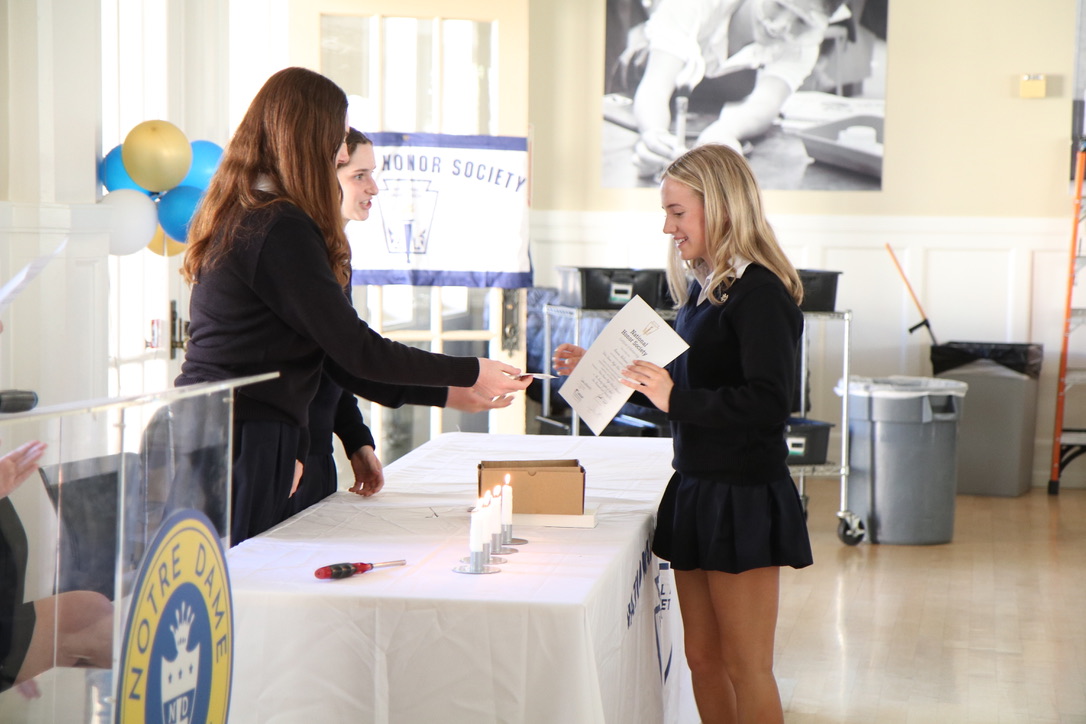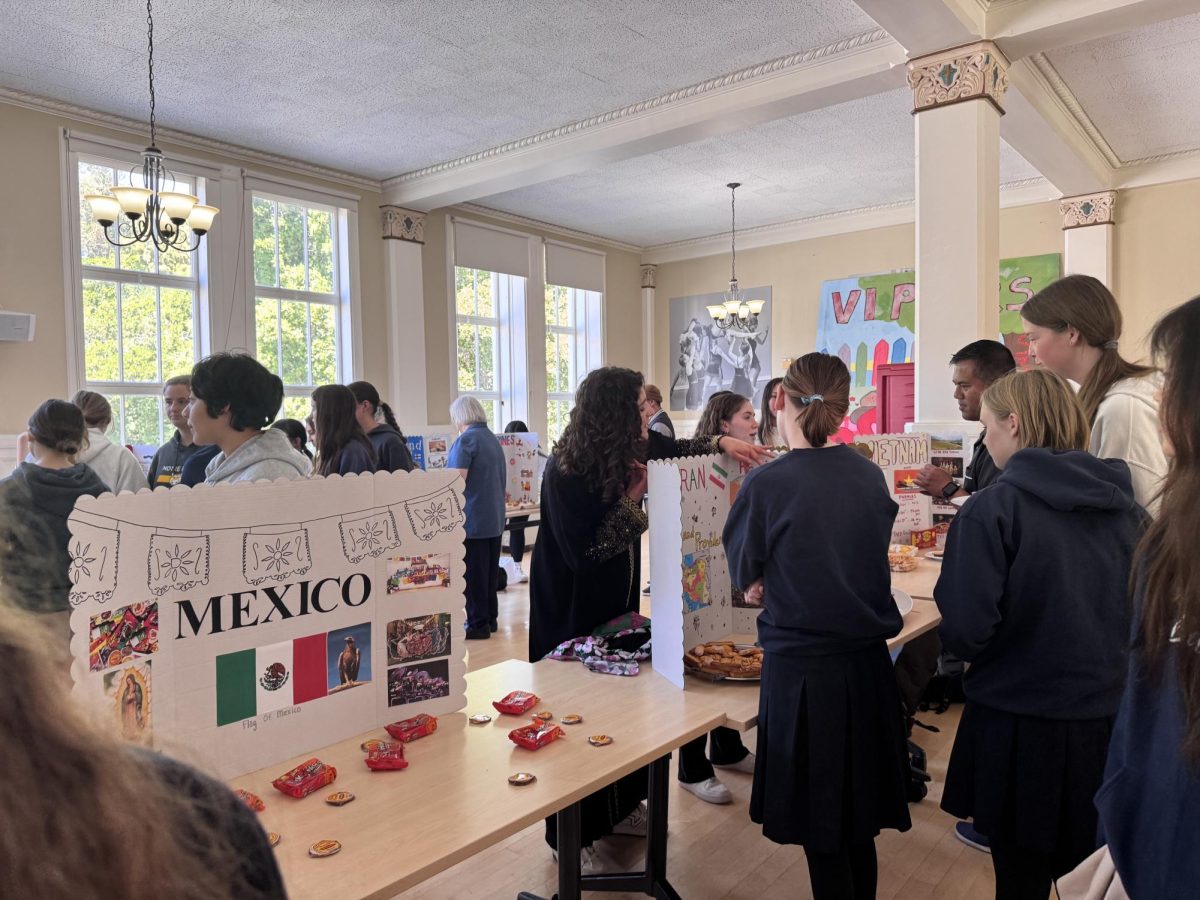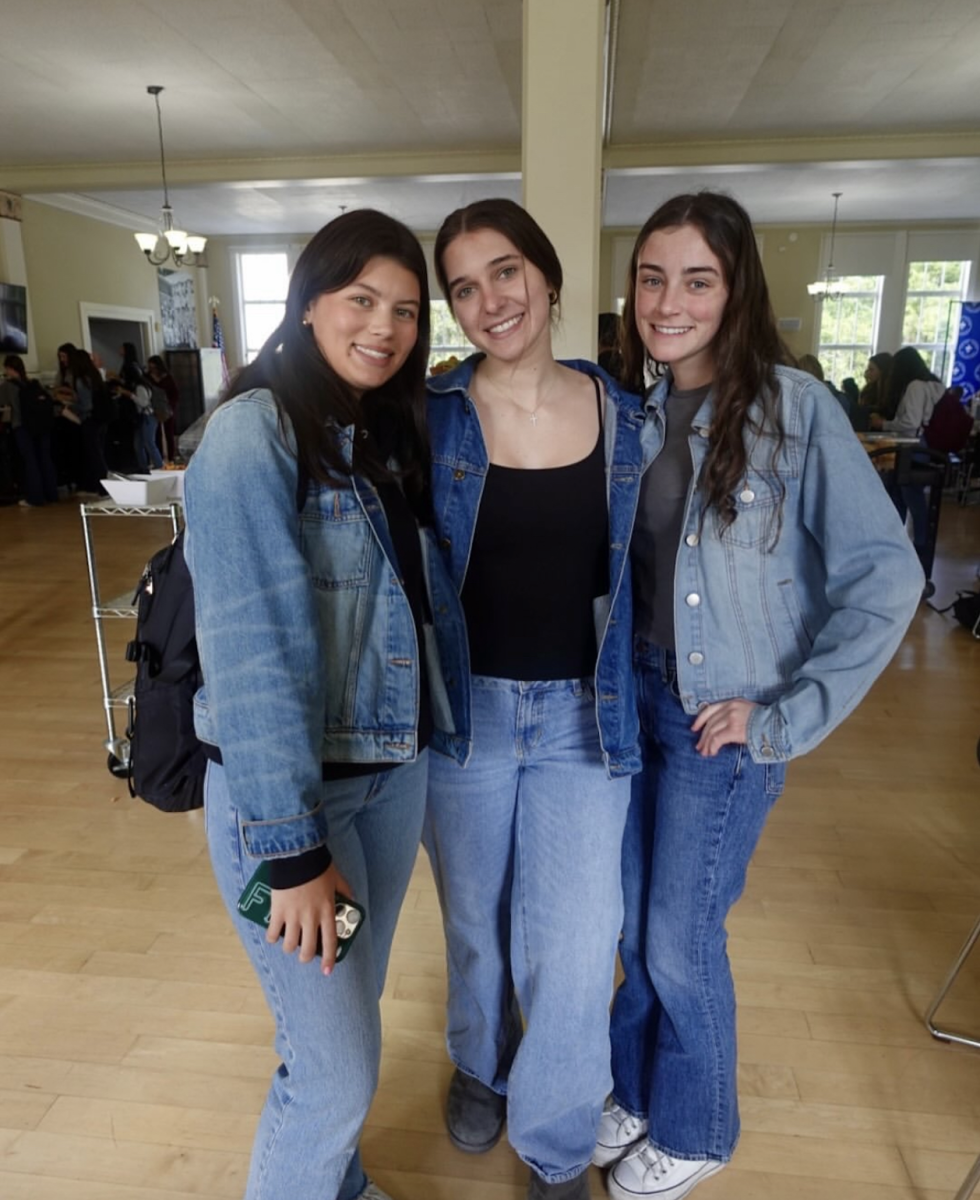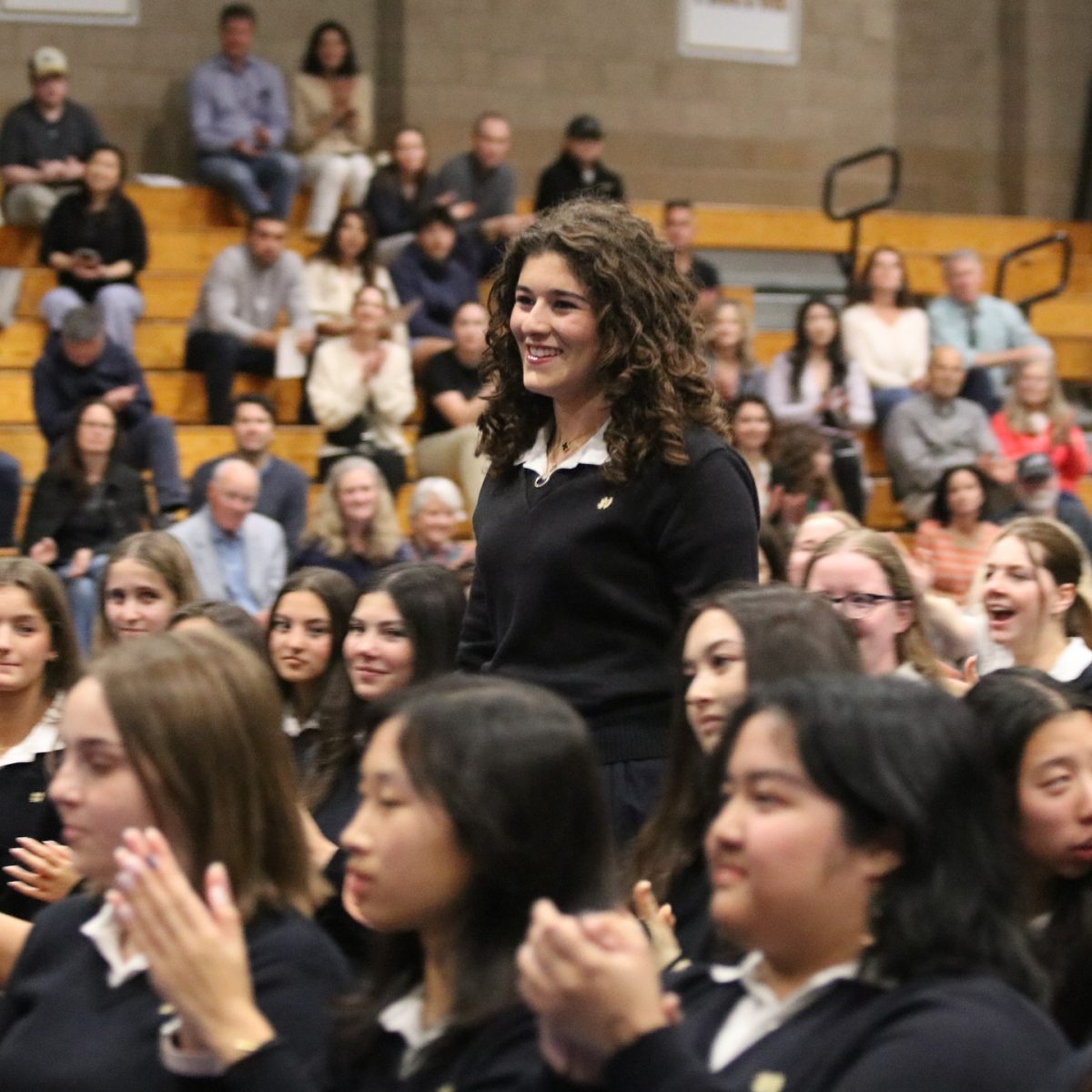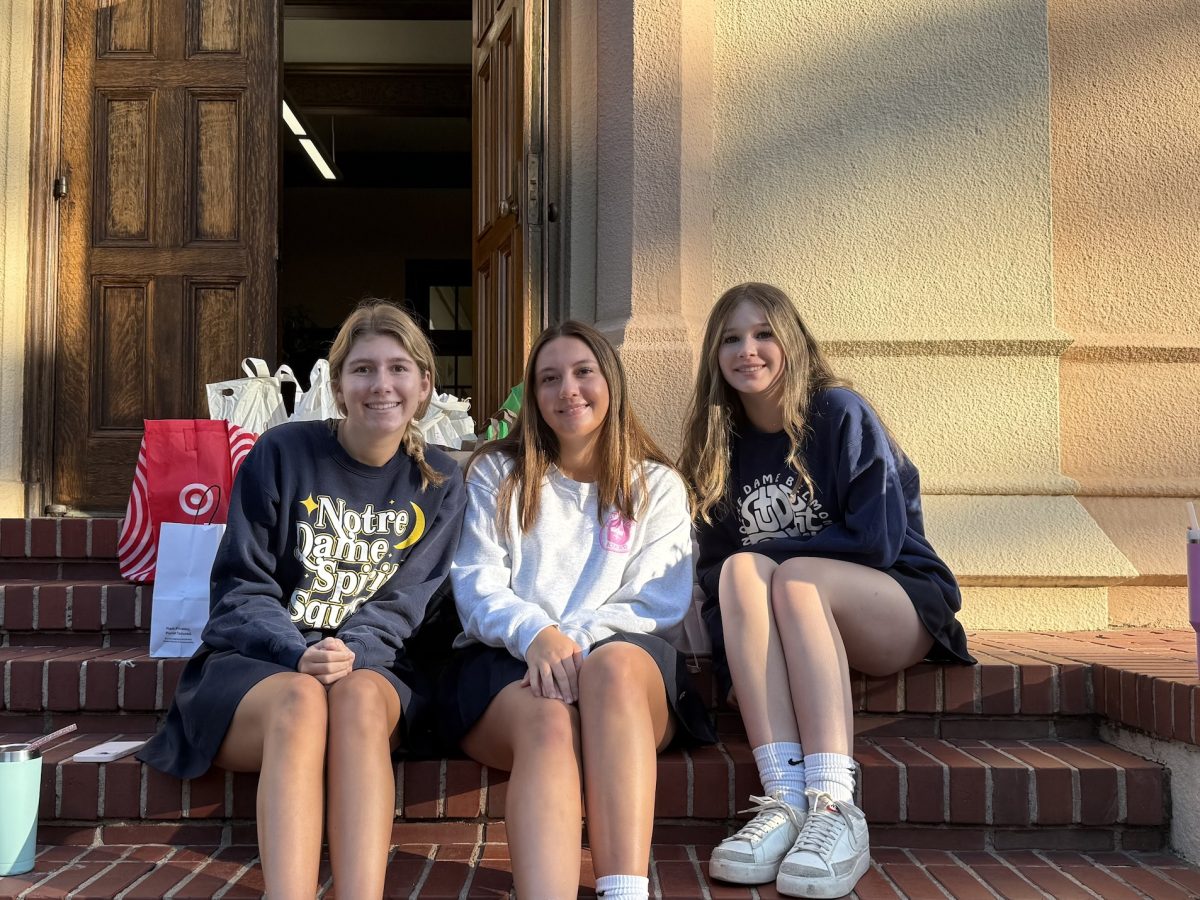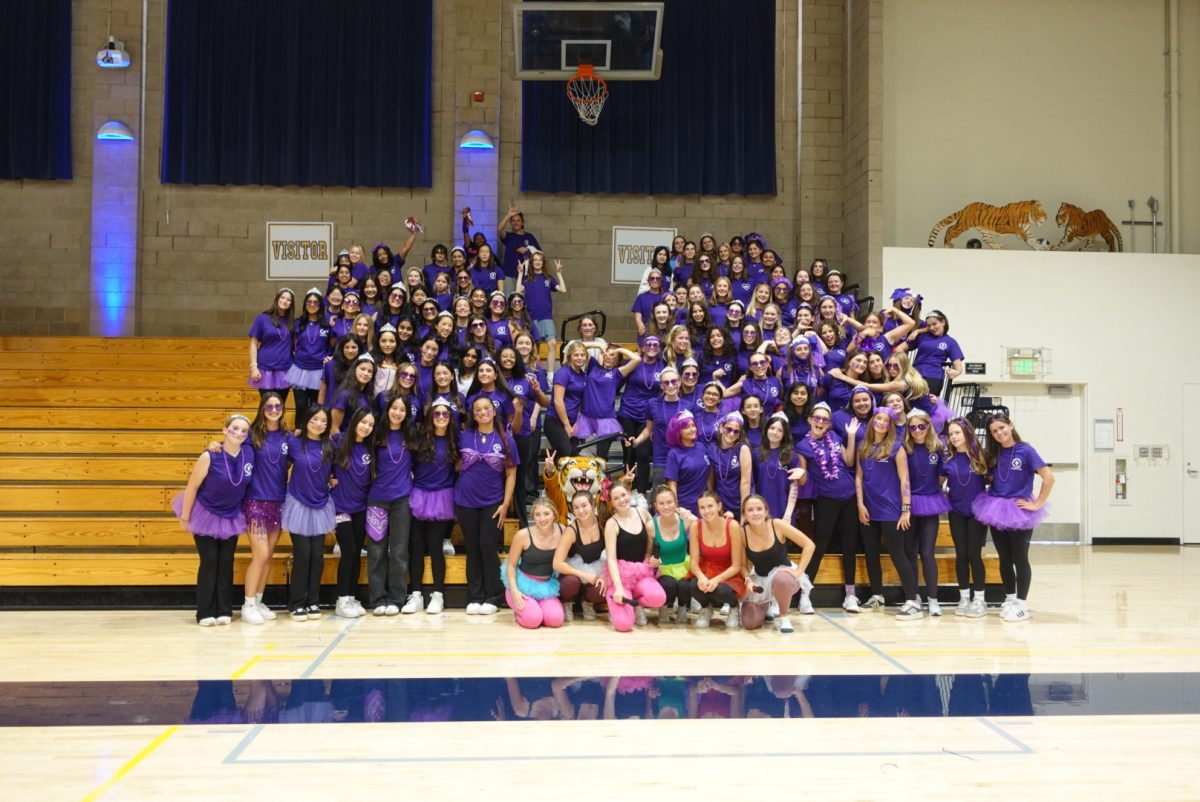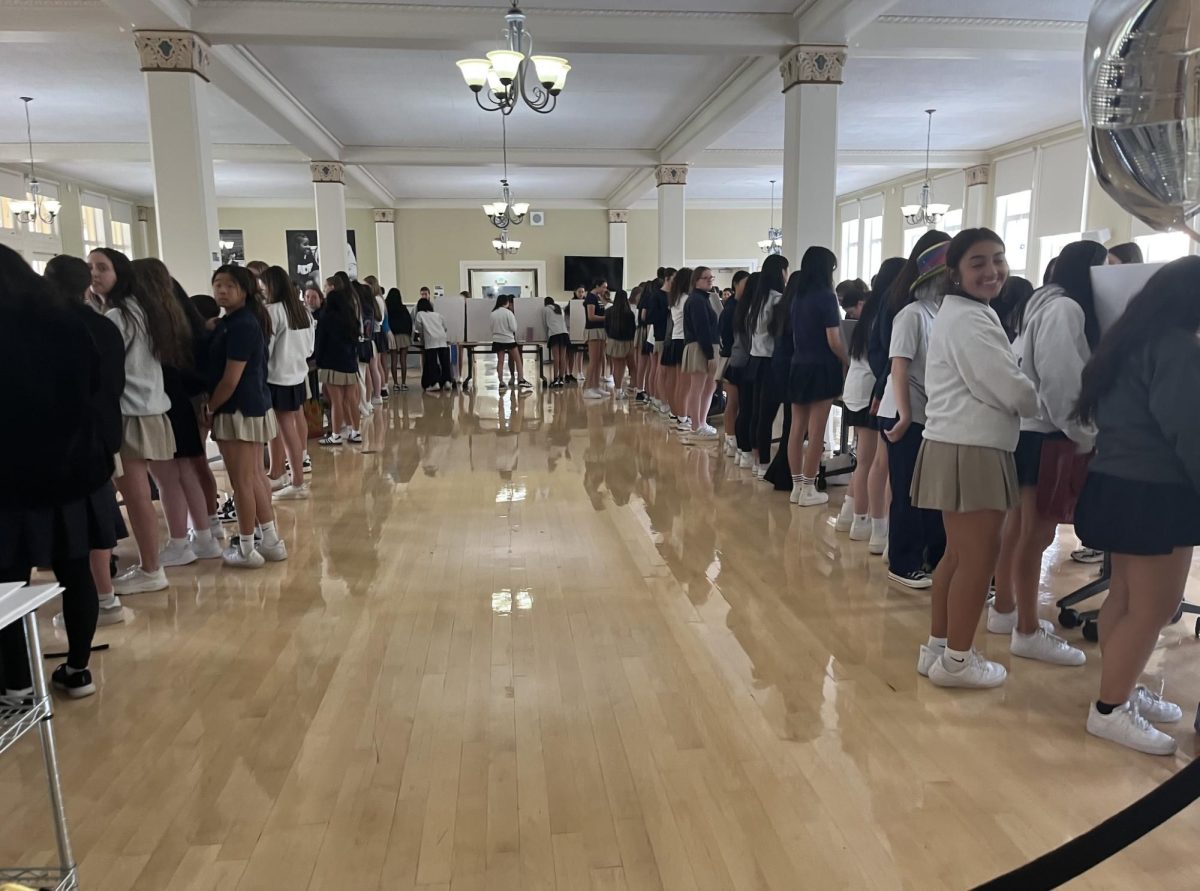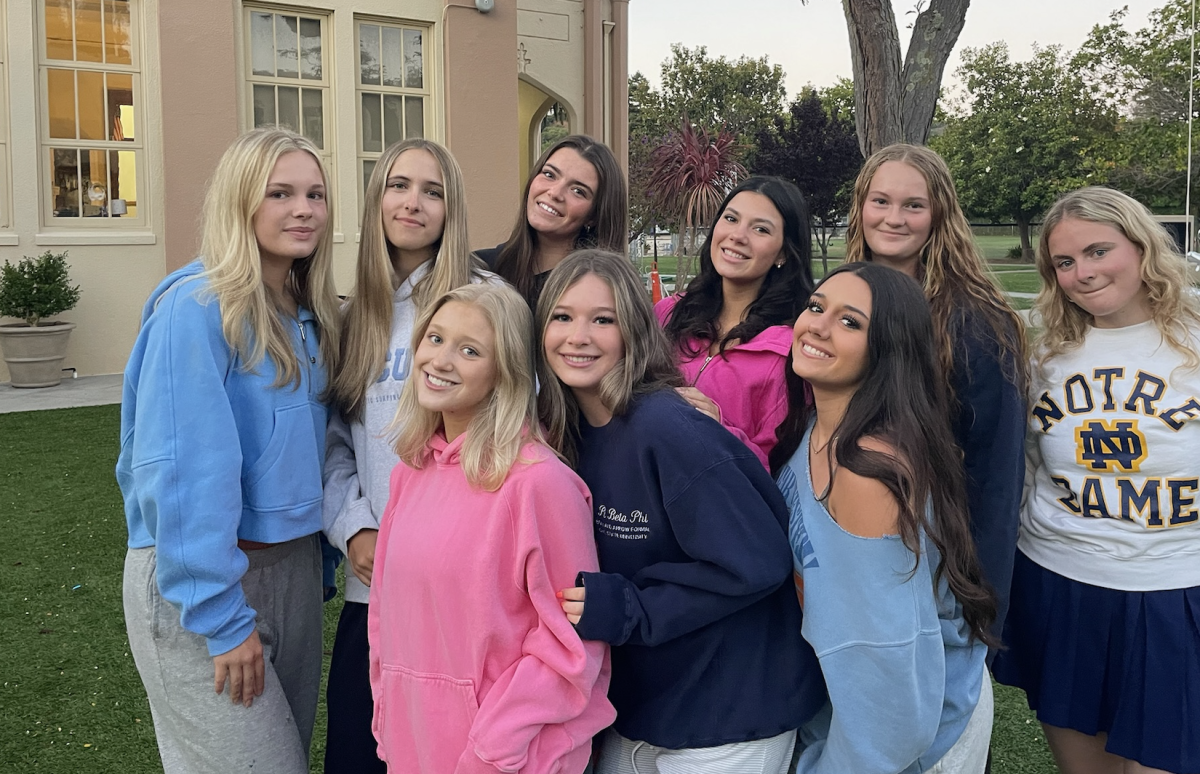Last Wednesday, April 2, NDB had the privilege to hear from Dr. Lerone Martin, Professor and Director of the Martin Luther King Jr, Research and Education Institute at Stanford University. The assembly had a special setup, like a fireside chat, with Martin sitting on stage with two student discussion leaders, sophomores Vivienne Butler and Aria Smith.
Martin teaches classes on the intersection of religion and politics in the university’s Department of Religious Studies. He became interested in this field from a young age because his parents had different views and would constantly debate religion and politics at the dinner table. It happened to such an extent that he thought it was normal and assumed that is how people conveyed their differences. He also recounted having professors who, as he described, “saw something in me that I did not see in myself,” and had a critical impact on his life. Later, his advisor at Anderson University, Dr. Jerry Grubbs, motivated him to attend divinity school at Princeton Theological Seminary, leading him to where he is today.
During the assembly, Martin emphasized the importance of integrating Black History Month into mainstream education and addressing the lesser-known aspects of MLK’s legacy. He described that society forgets that MLK was just a normal kid who struggled in school, made mistakes, and encountered failure, but what made him successful was his commitment to change and improving society.
“I think that, sometimes, we imagine that we have to be perfect [in order] to be heroes. We have to be ‘perfect change’ in our communities, and we don’t have to be perfect. There are no perfect heroes, but we do need a kind of commitment to perfection when it comes to being dedicated,” expressed Martin.
Given today’s current events, Martin’s message of treating each other as their neighbor is critical. He reminded NDB that history offers both valuable lessons and warnings, inspiring the student body to be change-makers.
“I think, [with] what’s going on in the world right now, it’s important that we have to remember the ideals for which this country was founded. This country and times fail to live up to those ideals. … [H]istory can be both informative for us, but it can also be a warning … that we can never, ever, ever, just assume that … we’ve reached perfection. We’ve always had to be open to moving forward, into living, into our ideals, which include … freedom and justice for all … not some, but for all,” explained Martin.
The theme of evolving connects to themes of equality and freedom and has a direct relationship with religion. At NDB, all of the spiritual life classes teach students to follow God’s message and to treat others as Jesus did. Social Justice Teacher David Muir describes the consequences of letting one’s self become narrow-minded.
“We would have to watch our ego because that’s what it is telling us. Right? And, if we’re where we can end up – living in a hall of mirrors – because what we think is God is actually ourselves … So, being mindful and be[ing] aware is important,” claimed Muir.
Without being aware of the possibility of being wrong, society and the individual can not evolve – Part of the reason Butler and Smith brought Martin to NDB.
“I hope people got out of it, like what [Martin] said when we were doing [the assembly]: If you … are resilient, put your mind to [it], … you could get somewhere high in the world, and you could achieve so many things. It doesn’t matter who you are. Don’t get discouraged about anything,” shared Butler.
Martin’s visit to NDB served as a powerful reminder of the importance of resilience, commitment to change, and the continuous pursuit of ideals, such as justice, freedom, and equality. His message emphasized that perfection is not a prerequisite for creating meaningful impact, and that each individual has the potential to be a change-maker. By acknowledging imperfections and remaining open to growth, humanity can contribute to a society that lives up to its founding ideals.
As Martin urged, history teaches people valuable lessons, and it is up to the community to apply those lessons to shape a better future. His words, alongside the reflections of NDB’s spiritual life teachings, encourage all to be mindful, humble, and ever-evolving in the school’s efforts to treat others with kindness and respect.


